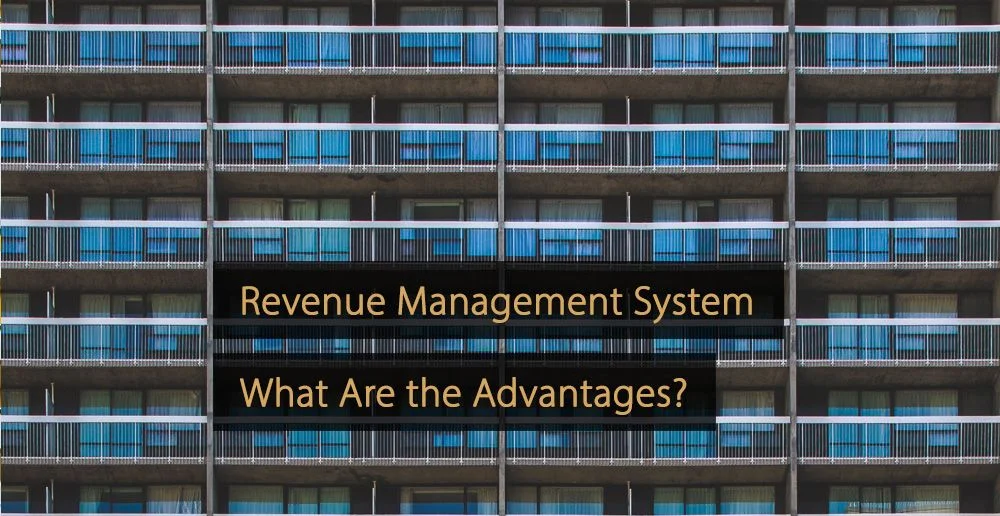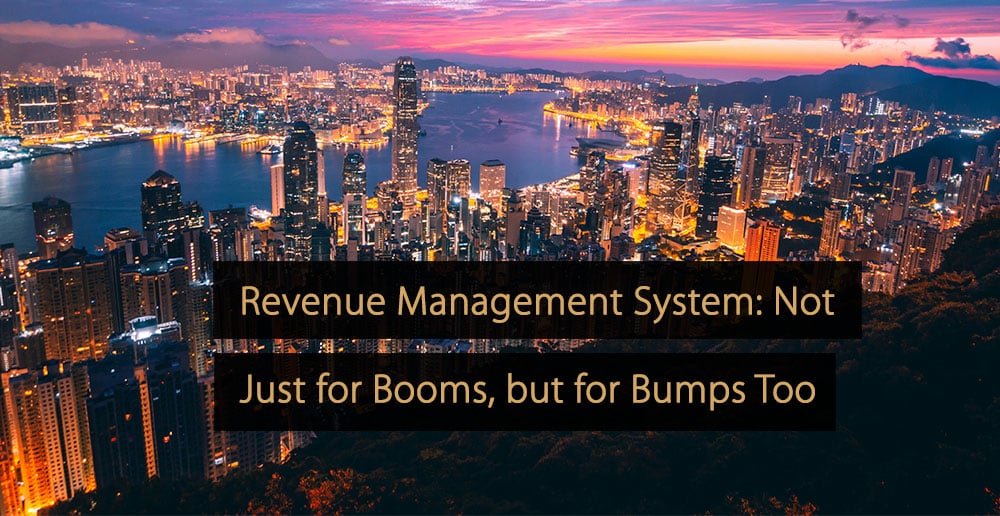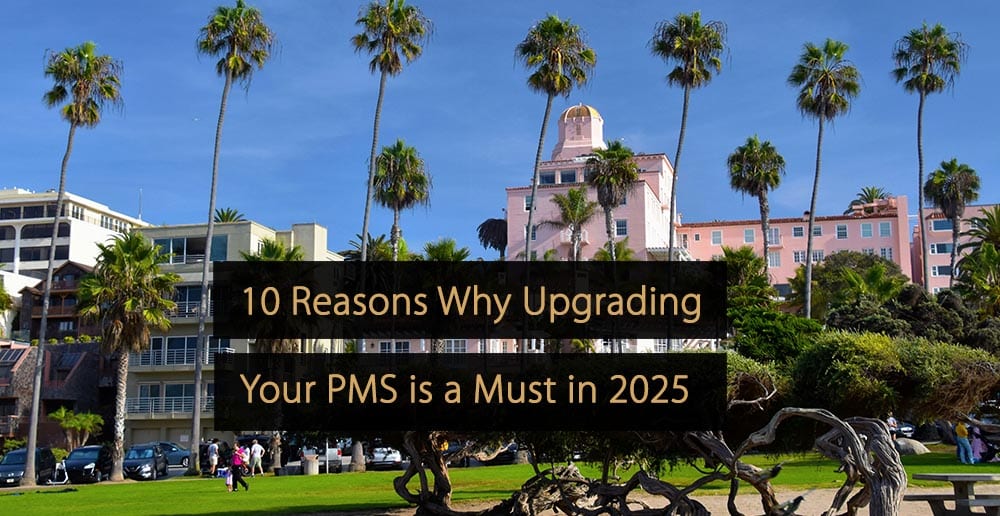A revenue management system is a software solution that allows hospitality brands to carry out various revenue management activities. For instance, the software makes it easier to forecast changes in demand and optimize pricing.
Revenue management systems provide hotels and similar businesses with a number of major advantages, including improved accuracy and efficiency. It’s important for business leaders to understand these advantages and invest in a high-quality solution that will provide the key benefits.
In this article, you’ll learn all about revenue management systems, how they work, and the reasons for using them.
Table of Contents:
- What Is Revenue Management?
- What Is a Revenue Management System (RMS)?
- Why Is a Revenue Management System Important?
- What Are the Most Important Functions of an RMS?
- What Is Total Revenue Management?
What Is Revenue Management?
Revenue management is a key concept within the hospitality industry because hotels must contend with fixed costs, a perishable inventory, and varying demand levels. Typically, revenue management involves using analytics and available data to predict demand, make strategic pricing decisions, and maximize revenue.
For hotel owners, revenue management can be summarized as the following: Selling the right room to the right customer at the right time for the right price via the right distribution channel with the best cost efficiency.
Ultimately, revenue management allows those operating in hotel management to make more informed decisions backed up by evidence and data in order to optimize business practices. With a robust revenue management strategy, owners can bring in more money, ensure their costs are covered, and maximize profit.
What Is a Revenue Management System (RMS)?
Essentially, a Revenue Management System, or short RMS, is a software solution that allows you to carry out important revenue management tasks more efficiently and effectively. It will make use of data from your hotel and from the market at large to help you make more informed decisions. According to the Global Hotel Revenue Management System Market Report by Verified Market Reports, the global hotel revenue management system market size is projected to grow at a CAGR of 8.7% until 2028.
Typically, a good Revenue Management System will use the data and its algorithms to carry out a real-time analysis of the state of the market and of demand to calculate ideal room rates. As a result, most of the important hotel revenue management decisions can be carried out from a single, centralized dashboard.
Why Is a Revenue Management System Important?
The primary reason why a Revenue Management System is important for those in the hospitality industry, regardless of the size of their hotel, is because it allows complex calculations to be carried out quickly and allows for real-time tracking of market data virtually impossible to replicate manually. According to the Unleashing Revenue Potential Report by IdeaS, 76% of hoteliers surveyed believe that revenue management technology will become more important in the future.
A Revenue Management System makes it easy to adjust prices across various distribution channels without having to log in to each of those different systems individually. As a result, key performance indicators, such as revenue per available room (RevPAR) can be improved, increasing the hotel’s top and bottom lines.
The use of an RMS is important in smaller hotels because fewer rooms mean it is more important to maximize the revenue each room generates. However, it is arguably even more important in larger hotels because the sheer workload of manual revenue management becomes problematic, resulting in poorer decisions and more errors.
Table: Importance of a RMS System for Various Hotel Departments
What Are the Most Important Functions of an RMS?
In most cases, Revenue Management Systems are comprehensive software packages with a range of features and functions. With that being said, the following are the most important features:
1. Rate Recommendations
Perhaps the most crucial feature for most Revenue Management Systems is the ability to quickly and accurately calculate ideal room rates using sophisticated algorithms, past performance data, current market data, and other information. Room rates can then be easily adjusted from the main dashboard across distribution channels.
2. Competitor Information
Most RMS software includes an integrated competitor rates feature, allowing you to easily check room rates for other hotels in the area or other hotels of a similar size. This feature is valuable because when armed with a knowledge of competitors’ rates, you can adopt a more strategic approach to your pricing.
3. Key Performance Data
A Revenue Management System will also store and provide key performance data, including occupancy rates, revenue per available room (RevPAR), and average daily rates (ADR). In most cases, users can see performance data from the prior month, from the same time last year, and various other options.
Video: Ideal Pricing
4. Revenue Estimations
Finally, aside from displaying past data and helping you to set your room rates, a Revenue Management System will also provide you with estimates for both the revenue and the profit you are likely to generate through your current pricing strategy and allow you to see estimates for alternative pricing strategies too easily.
What Is Total Revenue Management?
If hotel revenue management is about optimizing the pricing and availability of hotel rooms by using data and analytics to predict customer demand, total revenue management is the process of applying these tactics to all revenue sources. This might mean gyms, restaurants, spas, conferencing services, etc.
Read our “Total Revenue Management: How Hotels Can Maximise Their Revenue“ article, and you will learn much more about total revenue management, how it can be achieved, and the various benefits.
Revenue Management System FAQs
Revenue management is selling the right room to the right customer at the right time for the right price via the right distribution channel. A Revenue Management System can assist with each of these aspects. RMS software solutions can help calculate ideal room rates, adjust rates quickly, provide projections of future revenue and profit, and offer information about competitors, allowing for a more strategic approach.
More Information About Hotel Revenue Management System
Would you like to learn more about hotel management software solutions that can help you to grow your hotel business? In the following articles, you will find more information about the most important hotel management software for hotels:
- PMS System: What Are the Most Important Features?
- Hotel Management Software Solutions Every Hotel Needs
- Hotel Distribution Channel Manager: What Are the Advantages?
- Hotel App: Optimise Your Guest Communication, Experience & Revenue
- Hotel Management Software: What Are the Benefits for Hotels?
- RMS System: An Overview of the Most Important Features
- PMS Software: Which Software Integration Should a PMS Have?
- Essential Tips to Choose the Right Property Management System
- Hotel Software: The Most Important Software Solutions for Hotels
More Tips to Grow Your Business
Revfine.com is the leading knowledge platform for the hospitality and travel industry. Professionals use our insights, strategies, and actionable tips to get inspired, optimize revenue, innovate processes, and improve customer experience.Explore expert advice on management, marketing, revenue management, operations, software, and technology in our dedicated Hotel, Hospitality, and Travel & Tourism categories.
This article is written by:
Hi, I am Martijn Barten, founder of Revfine.com. With 20 years of experience in the hospitality industry, I specialize in optimizing revenue by combining revenue management with marketing strategies. I have successfully developed, implemented, and managed revenue management and marketing strategies for individual properties and multi-property portfolios.










Leave A Comment